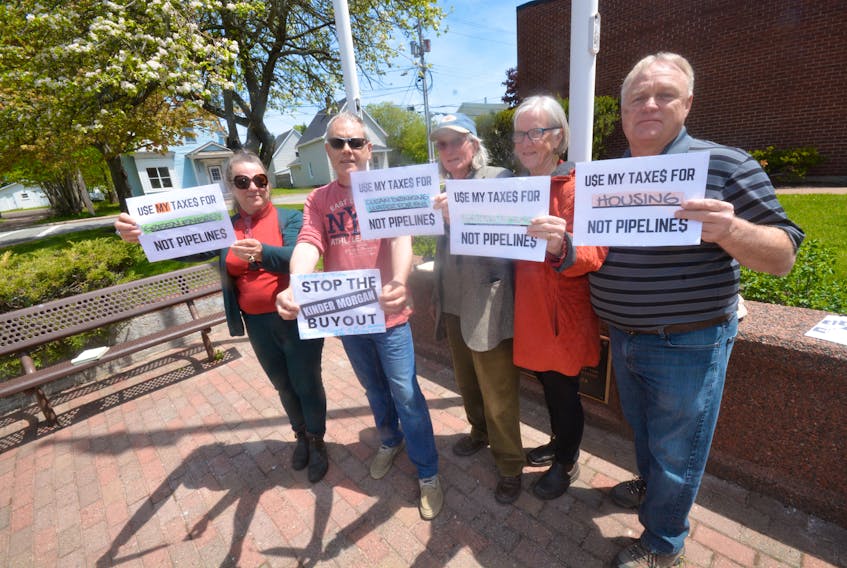It’s a court decision on the other side of this country, but it’s one that governments in the Atlantic region should probably sit up and take notice of.
On Thursday, a judge of the Federal Court of Appeal halted the construction of the Trans Mountain Pipeline expansion for two main reason, essentially sending the project back for an expanded environmental review.
One of the grounds for halting construction seems, in retrospect, almost obvious: the court ruled that, when the environmental impacts of a project are under review, you actually have to review all of the environmental impacts. The review of the pipeline project by the National Energy Board stopped at the ocean’s edge, and failed to meaningfully consider the impact of a large increase in marine tanker traffic. If the tankers wouldn’t be there without the pipeline expansion, well, those tankers are necessarily part of the environmental impact of the pipeline expansion.
But the other thing that governments here should be paying attention to is a ground of appeal that’s likely to surface more and more often in all kinds of government-supported projects: meaningful consultation with Indigenous groups.
For governments here, that points to a need to include all facets of projects under review. If you’re reviewing the expansion of a salmon hatchery, that review should probably include whatever expansion is likely to happen where those salmon are being grown to full size, for example.
But the other thing that governments here should be paying attention to is a ground of appeal that’s likely to surface more and more often in all kinds of government-supported projects: meaningful consultation with Indigenous groups.
The Supreme Court of Canada has already ruled in other cases that governments have to consult with Indigenous groups about issues that affect those groups; the level of consultation required depends on how significant the impacts of decisions may be.
In Trans Mountain, the federal government didn’t do enough.
“Canada failed … to engage, dialogue meaningfully and grapple with the real concerns of the Indigenous applicants so as to explore possible accommodation of those concerns. The duty to consult was not adequately discharged,” Judge Eleanor Dawson wrote. “In the present case, much turns on what constitutes a meaningful process of consultation. Meaningful consultation is not intended simply to allow Indigenous peoples ‘to blow off steam’ before the Crown proceeds to do what it always intended to do.”
The judge ruled that, while federal officials listened to Indigenous concerns, that’s as meaningful as the consultations were.
“Canada was required to do more than receive and understand the concerns of the Indigenous applicants. Canada was required to engage in a considered, meaningful two-way dialogue. … For the most part, Canada’s representatives limited their mandate to listening to and recording the concerns of the Indigenous applicants and then transmitting those concerns to the decision-makers.”
The lesson, in case it isn’t already clear?
Listening is one thing. Consultation is a two-way street.
It’s a lesson that could easily arise for any of this region’s four provincial governments.









